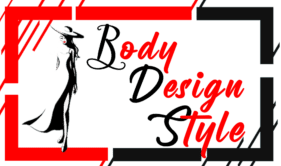Key Takeaways:
- Plus-size fashion brands that prioritize ethical practices are becoming more prevalent in the industry.
- These brands focus on creating inclusive and diverse clothing options for women of all sizes.
- Ethical plus-size brands promote sustainable manufacturing processes and use eco-friendly materials.
- They prioritize fair labor practices, ensuring that workers are paid a living wage and have safe working conditions.
- Supporting ethical plus-size brands helps to challenge societal beauty standards and promote body positivity.
Earliest Plus-Size Brands That Emerged in the Fashion Industry
The emergence of plus-size brands in the fashion industry can be traced back to the late 20th century when there was a growing demand for clothing that catered to women with larger sizes. One of the earliest plus-size brands that gained recognition was Lane Bryant, which was founded in 1904. Lane Bryant started as a maternity wear brand but later expanded its offerings to include plus-size clothing. The brand played a crucial role in challenging societal norms and promoting body positivity by providing fashionable and stylish options for women of all sizes.
Another pioneering plus-size brand is Torrid, which was established in 2001. Torrid focused on providing trendy and fashionable clothing specifically for young plus-size women. It quickly gained popularity among its target audience and became known for its inclusive sizing and diverse range of styles.
Early Plus-Size Brands:
- Lane Bryant
- Torrid
Influence of Ethical Considerations on the Growth and Development of Plus-Size Brands
Ethical considerations have played a significant role in shaping the growth and development of plus-size brands. As society becomes more conscious about issues such as body inclusivity, sustainability, fair labor practices, and worker rights, consumers are demanding that brands align with these values.
Plus-size brands that prioritize ethical considerations have been able to build trust and loyalty among their customer base. By promoting body positivity and inclusivity, these brands create a sense of empowerment among their customers, who feel seen and represented by the brand’s messaging and product offerings.
Influences on Growth:
- Body inclusivity
- Sustainability
- Fair labor practices
- Worker rights
Impact on Plus-Size Brands:
- Build trust and loyalty among customers
- Create a sense of empowerment for customers
- Align with consumer values and expectations
Plus-Size Brands Prioritizing Sustainable and Eco-Friendly Practices
Introduction
As the fashion industry becomes more conscious of its environmental impact, plus-size brands are also stepping up to prioritize sustainable and eco-friendly practices. These brands recognize the importance of reducing their carbon footprint and minimizing waste while still providing fashionable options for their customers.
Efforts in Material Sourcing
Ethical plus-size brands are actively seeking out sustainable materials for their clothing lines. They prioritize organic fabrics such as cotton, linen, and bamboo, which are grown without harmful pesticides or chemicals. Additionally, they explore innovative alternatives like recycled polyester made from plastic bottles or regenerated fibers from post-consumer waste.
Adoption of Circular Fashion Principles
Many ethical plus-size brands are embracing circular fashion principles to promote a more sustainable approach to production. They focus on creating durable garments that can be worn for a long time and offer repair services to extend the lifespan of their products. Some brands even have take-back programs where customers can return old items for recycling or repurposing.
Promoting Body Positivity and Inclusivity: How Ethical Plus-Size Brands Do It
The Importance of Body Positivity
Ethical plus-size brands understand the significance of promoting body positivity and inclusivity in their marketing campaigns and product offerings. They aim to challenge societal beauty standards by featuring diverse models of different sizes, shapes, ages, races, and abilities.
Inclusive Size Ranges
One way ethical plus-size brands promote inclusivity is by offering a wide range of sizes that cater to various body types. They go beyond the standard sizes found in mainstream fashion and provide extended size options to ensure that everyone can find clothing that fits them comfortably.
Representation and Authenticity
Ethical plus-size brands prioritize authentic representation by featuring real customers and influencers in their marketing materials. They celebrate the uniqueness of each individual and showcase diverse styles and designs that cater to different fashion preferences within the plus-size community.
Addressing Fair Labor Practices and Worker Rights: Efforts by Ethical Plus-Size Brands
Fighting Against Exploitation
Ethical plus-size brands are committed to addressing fair labor practices and ensuring worker rights throughout their supply chains. They recognize the importance of providing safe working conditions, fair wages, and reasonable hours for all employees involved in the production process.
Supply Chain Transparency
These brands prioritize transparency by openly sharing information about their supply chain partners. They conduct regular audits to ensure compliance with ethical standards and work closely with suppliers to improve working conditions if necessary. By maintaining a transparent supply chain, they empower consumers to make informed choices about the brands they support.
Certifications and Partnerships
Many ethical plus-size brands obtain certifications such as Fair Trade or Global Organic Textile Standard (GOTS) to demonstrate their commitment to fair labor practices. They also form partnerships with organizations advocating for worker rights, supporting initiatives that aim to improve labor conditions in the fashion industry as a whole.
Ensuring Size Diversity, Styles, and Designs: Steps Taken by Ethical Plus-Size Brands
Celebrating Size Diversity
Ethical plus-size brands understand the importance of offering a wide range of sizes, styles, and designs that cater to diverse customer preferences. They strive to break away from limited options often found in mainstream fashion and provide inclusive choices for all body types.
Collaborations with Plus-Size Designers
To ensure a variety of styles and designs, ethical plus-size brands collaborate with plus-size designers who understand the unique needs and fashion preferences of the community. These collaborations result in collections that are both trendy and inclusive, offering a wide range of options for customers to choose from.
Customer Feedback and Co-Creation
Ethical plus-size brands actively listen to their customers’ feedback and engage them in the design process. They conduct surveys, focus groups, and social media interactions to understand what their customers want in terms of size diversity, styles, and designs. This co-creation approach ensures that the brand’s offerings align with customer expectations.
Controversies and Challenges Faced by Ethical Plus-Size Brands in Maintaining Values
Sizing Inconsistencies
One challenge faced by ethical plus-size brands is the lack of standardized sizing across the industry. Inconsistent sizing makes it difficult for these brands to cater to a diverse range of body types accurately. They often have to invest additional resources in research and development to ensure their clothing fits well on different individuals.
Pricing Pressures
Another controversy faced by ethical plus-size brands is the pressure to offer competitive prices while maintaining sustainable practices. Sustainable materials and fair labor practices can increase production costs, making it challenging for these brands to compete with fast fashion retailers that prioritize low prices over ethical considerations.
Negative Stereotypes and Stigma
Ethical plus-size brands also face negative stereotypes and stigma associated with being labeled as “plus-size.” Some consumers may still hold biased beliefs about larger bodies or assume that plus-size clothing should be less fashionable or limited in options. Overcoming these stereotypes requires continuous education and challenging societal norms.
Consumer Attitudes Towards Ethical Fashion’s Impact on Plus-Size Brand Success
Growing Demand for Ethical Plus-Size Brands
Consumer attitudes towards ethical fashion have been evolving, with an increasing demand for sustainable and inclusive options in the plus-size market. Many consumers are becoming more conscious of the social and environmental impact of their clothing choices, leading them to seek out brands that align with their values.
Supporting Brands with Authenticity
Consumers appreciate ethical plus-size brands that demonstrate authenticity in their commitment to sustainability and inclusivity. They value transparency, fair labor practices, and size diversity. When consumers find brands that prioritize these values, they are more likely to support them through purchases and word-of-mouth recommendations.
Educating Consumers about Ethical Fashion
Despite growing interest in ethical fashion, there is still a need for consumer education regarding its impact on plus-size brand success. Brands can play a role in educating consumers about the importance of supporting ethical practices and how it positively influences the industry as a whole.
Trends and Innovations from Ethical Plus-Size Brands in Sustainability and Social Responsibility
Adopting Sustainable Packaging Solutions
Ethical plus-size brands are exploring innovative packaging solutions to reduce waste. They opt for eco-friendly materials such as recycled paper or biodegradable plastics for their product packaging. Some brands even encourage customers to reuse or recycle packaging materials to further minimize environmental impact.
Investing in Renewable Energy Sources
To reduce their carbon footprint, some ethical plus-size brands are investing in renewable energy sources for their operations. They install solar panels or purchase renewable energy credits to power their offices, warehouses, and manufacturing facilities. This commitment to clean energy contributes to a more sustainable future.
Collaborating with Sustainable Influencers
Ethical plus-size brands are partnering with sustainable influencers who align with their values and promote conscious consumerism. These collaborations help spread awareness about the brand’s sustainability efforts and encourage consumers to make more informed choices when it comes to their fashion purchases.
In conclusion, the guide to ethical plus-size brands is a valuable resource for consumers looking to make conscious and inclusive fashion choices. By highlighting brands that prioritize fair labor practices, sustainability, and body positivity, this guide empowers individuals to support companies that align with their values while promoting diversity in the fashion industry.


